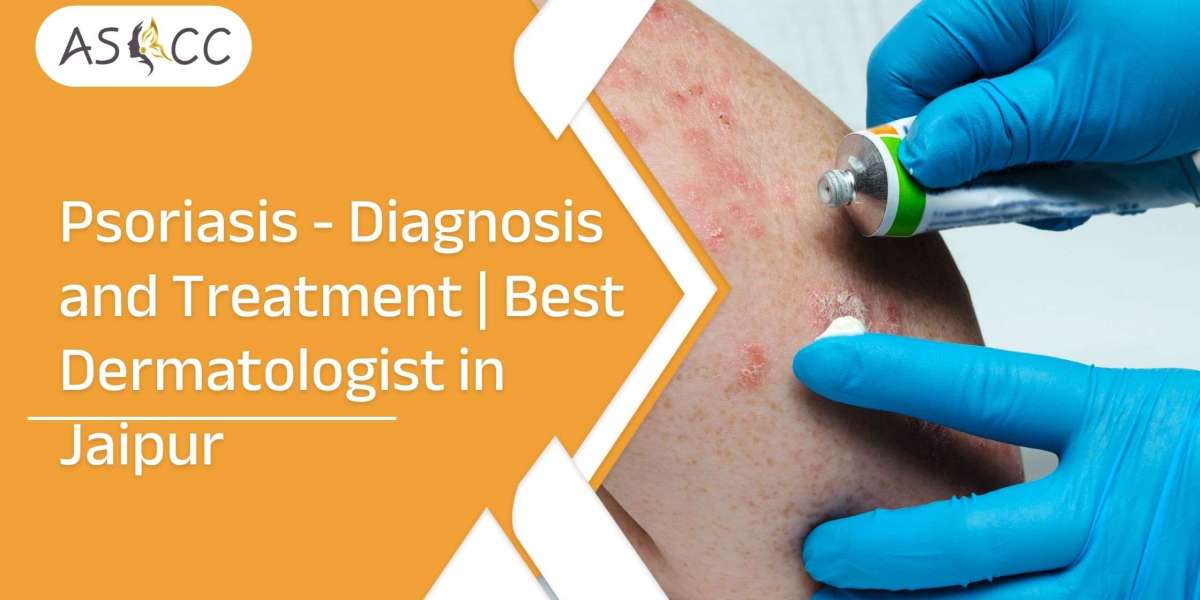Living with psoriasis can sometimes feel like a rollercoaster—frustrating, confusing, and downright exhausting. The bright side is that you're not on this ride by yourself, and there are practical ways to keep the symptoms in check. Let's walk through what psoriasis is, how doctors figure it out, and the range of treatments you can try.
What is Psoriasis?
Definition of Psoriasis
Psoriasis is a long-lasting autoimmune condition that speeds up the growth and death of skin cells. Instead of falling off a few at a time, they stack up, forming raised, red, scaly patches that can itch, sting, or even burn. Because it involves the immune system, it goes way beyond cosmetic concerns.
Common Myths About Psoriasis
Time to knock down a few old myths:
No, psoriasis isn't contagious— you won't catch it from hugging someone who has it.
It's more than dry skin; the problem starts deep in the immune system, not just at the surface.
And, no, having a flare-up doesn't mean you're not washing properly— hygiene has nothing to do with it.
Causes and Risk Factors
Genetic Influences
Psoriasis often runs in families, so if a parent or sibling has it, your odds go up. Scientists think specific genes affect how your immune system behaves, setting the stage for the condition.
Environmental Triggers
Even if you carry the genes, flare-ups can be sparked by outside factors: cold, rough weather, cuts or sunburns on the skin, certain infections, and a handful of medications. Knowing your triggers can help you dodge some of the worst episodes.
Lifestyle Factors
Heavy drinking, smoking, junk food, and constant stress make psoriasis flare-ups worse. Think of these habits as adding extra logs to an already roaring fire.
Types of Psoriasis
Plaque Psoriasis (Psoriasis Vulgaris)
By far the most common form, plaque psoriasis shows up as raised, red patches blanketed with silvery-white scales. People usually find it on elbows, knees, and across the scalp.
Guttate Psoriasis
Guttate psoriasis looks like a shower of tiny red dots spread over the trunk and limbs. It often pops up after a strep throat due to the germs working on already sensitive skin.
Inverse Psoriasis
This type hides in skin folds—under the breasts, around the groin, or between the buttocks. The affected areas stay shiny and bright red, usually without the thick scales seen elsewhere.
Pustular Psoriasis
Pustular psoriasis is rare and serious. It causes white blisters filled with pus on red, tender skin. It can blanket large parts of the body and may need immediate treatment.
Erythrodermic Psoriasis
Erythrodermic psoriasis is a severe, life-threatening emergency. The entire skin surface turns bright red and peels off in big sheets. Call for medical help right away if this happens.
Symptoms of Psoriasis
Physical Symptoms
Raised red patches covered with silvery-white scales
Dry, cracked areas that may bleed
Persistent itching, a burning sensation, or soreness
Nails that grow thick, ridged, or pitted
Painful, swollen joints in cases of psoriatic arthritis
Emotional and Psychological Impact
Psoriasis isn't purely physical. Watching your skin change can shake your self-esteem, trigger anxiety, and sometimes lead to depression. You end up working on your head as much as your elbows.
How is Psoriasis Diagnosed?
Clinical Examination
Most of the time, a dermatologist can spot psoriasis with a quick look. They'll chat with you about your symptoms, family history, and daily habits.
Skin Biopsy
When the picture isn't clear, the doctor may take a tiny skin sample and check it under a microscope to rule out other issues.
Differential Diagnosis
Psoriasis can mimic eczema, fungal rashes, or even lupus, so pinning down the right name is crucial for starting the right care.
Psoriasis Treatment Options
Topical Treatments
For mild cases, steroid creams, vitamin D ointments, and salicylic acid gels calm inflammation and lift scales.
Phototherapy
Light therapy exposes the skin to controlled UVB rays, slowing cell growth and clearing patches.
Systemic Medications
When other options fail, pills or injections like methotrexate, cyclosporine, or acitretin bring relief for moderate to severe psoriasis.
Biologic Therapies
Biologic medications target certain parts of the immune system. Drugs like adalimumab (Humira), ustekinumab (Stelara), and secukinumab (Cosentyx) fit this category. For many people, they improve their lives.
Natural Remedies and Lifestyle Changes
Think of these habits as your backup team:
Moisturise every single day
Find ways to relax and manage stress
Skip the cigarettes and cut back on alcohol
Load up on omega-3-rich foods, such as salmon and flaxseed
Psoriasis and Mental Health
Stress as a Trigger
Stress doesn't just make existing plaques itchier; in some cases, it kicks off the whole cycle. That's why looking after your mind matters as much as looking after your skin.
Coping Mechanisms
Whether it's meditation, yoga, journaling, or talking to a therapist, stick with whatever helps you unwind. Your mental well-being and your skin are more closely linked than most people realise.
Diet and Nutrition in Psoriasis Management
Some foods have anti-inflammatory perks:
Salmon, sardines, and other fatty fish
Leafy greens, broccoli, kale
Bright, colourful fruits like berries and peppers
You might also try cutting back on processed items, dairy, and gluten to see if your skin settles down.
Preventing Psoriasis Flares
Stay on the treatment plan your doctor laid out. Moisturise like it's your new hobby. Dodge the triggers you know. And keep your immune system humming along by eating well, sleeping enough, and staying active.
Living with Psoriasis: Practical Tips
Opt for soft, breathable clothes instead of scratchy fabrics. Choose gentle, fragrance-free skin-care products. Drink plenty of water. And feel free to share what psoriasis is really about; raising awareness goes a long way toward smashing stigma.
When to See a Dermatologist
If over-the-counter creams aren't working or you notice patches spreading, make an appointment with a dermatologist in Jaipur sooner rather than later. There's no reason to suffer in silence.
Future Trends in Psoriasis Research
Researchers are continually testing new options, particularly in the area of biologics. One exciting possibility is personalised therapy, where doctors match treatment to your unique biology for better results.
Conclusion
Psoriasis is a chronic condition, but it shouldn't run your daily life. With an accurate diagnosis and the right plan, most people find relief. Learn what flares your skin, stay open to different therapies, and lean on friends and health teams for support-you deserve to feel at home in your skin.







